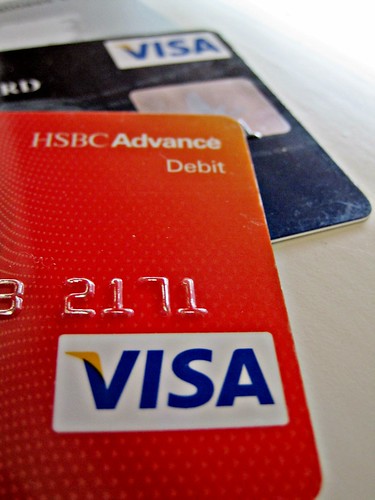Credit Card Information You Can Really Use
Consumer knowledge is key to the proper use of credit. This article will help you know more about charge cards and dodging the troubles associated with them. Consider that many individuals have cards and do not understand how to handle them correctly, this is how financial problems begin.
When it comes to credit cards, it is imperative that you read the contract and fine print. If you receive a pre-approved offer, look over the conditions and terms. Knowing the details is important. Know what the real interest rate is, if it goes up after the first year and how much time they allow for payment of it. Research extra fees, as well as grace periods.
Carefully utilize your credit cards. Limit your purchases to things you know you can afford. Be sure you are able to pay a charge on your statement before you make purchases with your card. If you can avoid carrying a balance over from month to month, you will remain in charge of your financial health.
Do not have a pin number or password that would be easy for someone to guess. Using something familiar, such as your birth date, middle name or your child’s name, is a big mistake since this information is readily available.
Don’t be scared to negotiate your interest rate with a credit company. If you have a good credit history with them, they may give you a better rate. A simple phone call may be all it takes in order to get a more competitive rate and save you money.
Don’t write your pin or password down where others can see it. You have to take the time to memorize these passwords and pin numbers to ensure that only you know what they are. If you write it down on a bill or keep it in your financial files, a thief could easily steal this information.
We have all experienced it: “You have been pre-approved for a credit card!” Sometimes you may want a new card, sometimes you might not. When you throw the mail away, rip it up. This is because many solicitations include your personal information.
Credit Card
Keep contact information for credit card companies, your account number, and all other relevant data in a safe place that is easy for you to access. Keep this list in a safe place, like a safety deposit box, away from each of your charge cards. Use this list to contact your credit card issuers if your credit cards are ever lost or stolen.
Request a free credit report annually and check it for accuracy. Ensure that your credit report and annual statements match up.
Keep credit card accounts open for as long as possible when you open one. Don’t switch to another credit card account unless you really have to. The length of your history with a creditor is one factor in your credit score. Keeping a strong credit history will benefit your score.
Verify all fees and charges associated with a potential credit card, rather than just the APR and interest rates. There are also charges like service charges, cash advance fees and application fees. These can make a card seem worthless if they cost too much.
Always remember that interest rates are negotiable. Your credit card provider may be open to negotiation if you want to secure a lower rate. With a good payment history to the company and good standing in your account, they will easily consider a rate change.
When considering a secured credit card, always read the agreement carefully. Most times, you’re told to deposit a small amount but you’re not aware that your money could be used up by fees that end up making you have a lower credit limit.
As stated at the start of the article, it’s really easy to find financial trouble when using credit. There are just so many cards and then you start buying things with them. After a while, you start to get into some trouble. Hopefully, this article will help you to avoid credit card problems and keep yourself financially healthy1



